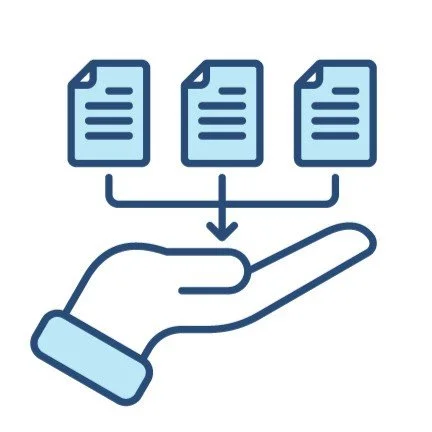Large-scale Development and Resident Consent
Investing in confirming informed consent serves both leaders and residents alike.
When residents have the opportunity to confirm or decline consent to host significant development opportunities using an evidence-based approach, it brings confidence and clarity to everyone involved in making and living out the decision to develop, or not to develop, the community in the manner proposed.
Consent-based development is achieved through an inclusive and robust resident engagement process that includes:
ethical data collection
deliberative democracy
scientific process
ethical data collection, the exercise of deliberative democracy, and a scientific process that results in qualitative and quantitative evidence that informs and justifies their development decisions.
The classic ways of seeking consent, such as community consultations conducted historically using approaches like town hall facilitated sessions, panel presentations, surveys, and open information meetings, may suffice to inform certain decisions and may leave behind critical perspectives when it comes to more significant issues and opportunities.
If we truly want to lead through representation, it is time to move beyond classic consultation styles, or skipping consultation altogether, when it matters to the lived experiences of residents.
Why Consent-Based Development Matters
From Consultation to Community Representation
Classic community consultations often only gather the perspectives of those with the privilege to take part, offering those with literacy, computer/internet access, ample availability, English language ability, physical ability, or pre-existing engagement to take part and be heard, among other factors. And, reliance on the votes cast in general elections to presume universal representation on all issues and opportunities that arise for decision-making in one term for an elected official leaves out the chance to check-in with residents for their consent altogether.
When it comes to development projects that have a likelihood of significant impact on the lives of residents, we can evolve from classic community consultations and presumed representation. And, we can do it exhaustively, accurately, and swiftly so as to confirm or decline consent up-front and justify with evidence the decision to develop, or not.
Representing the consent to take on key development opportunities must evolve from classic consultation modes involving a minority of residents providing anecdotal inputs; and beyond the presumption of community consent being present in every vote cast by elected representatives.
Working as a team of professionals passionate about representation, especially in smaller communities, we have coined a model for consent-based development as the neutral third party and have delivered it successfully in one of the most controversial segments in the development sector - nuclear waste storage.
If you are ready to learn from our experience and consider consent-based development for your leadership decisions, let’s talk.
Learning Opportunities
Book an event with us to learn more about our evidence-based methods that inform a methodology grounded in social science and quality control mechanisms.
At With Chéla Inc. we offer three options for learning and sharing about our experience with consent-based development and the precedent setting willingness study for hosting Canada’s Nuclear Waste in Ignace, Ontario
Keynote Presentation
-
listen as we take you through the journey of designing and delivering the project, offering key insights into how the outcome came about
Panel Discussion
-
interact with the professionals who carried out the work directly in a Q&A session to access more tailored information for your learning
Workshop
-
engage with us directly in a dynamic session built for leaders to prepare them for taking on consent-based development projects
Combine any or all of these opportunities for learning to enhance your readiness to invest in consent-based development or to become more familiar with our specific case in Ignace.
Dive into the Ignace Willingness Study
A Precedent-Setting Case of Consent-Based Development to Host Canada’s Nuclear Waste











